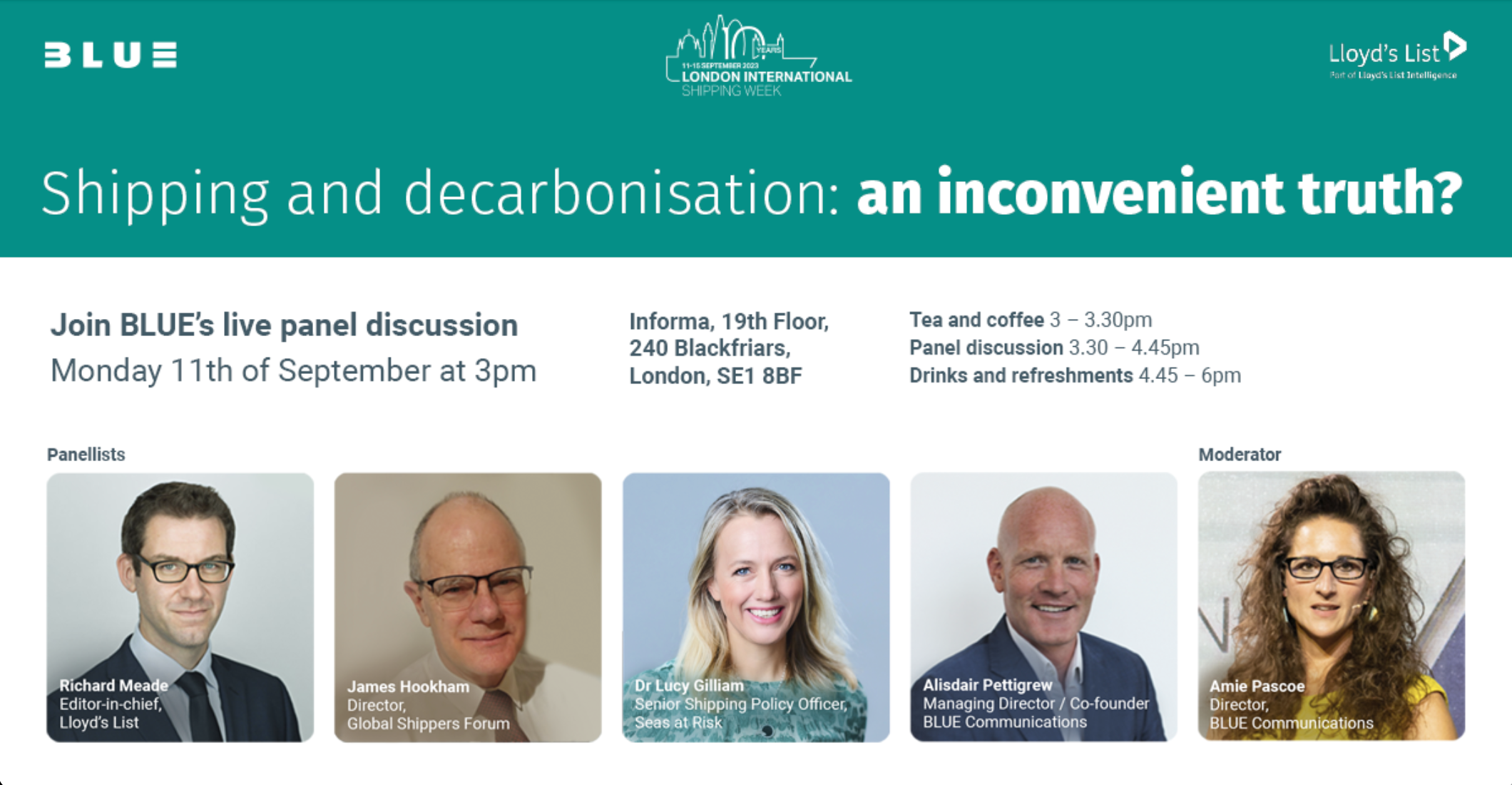What do people from outside shipping really think about the industry and its efforts to decarbonise? With the developments from MEPC 80 still fresh in the mind, regulators, governments, companies and organisations may believe they have a fairly accurate sense of how shipping is facing up to what is nothing less than its greatest collective challenge.
However, experience of life tells us that the perception of one’s self tends towards the subjective. In reality, a genuine reflection of reputation and an assessment of real progress can only truly be understood by seeking the perceptions and insights from those on the outside looking in. After all, your reputation is what people say about you when you are not in the room, rather than what you say about yourself.
US Founding Father Benjamin Franklin said “it takes many good deeds to build a good reputation, and only one bad one to lose it”. This rings true in life and in business. What is also true is that reputation can be hard to alter and certainly takes time to evolve.
I think for the majority of those outside the industry, shipping’s reputation might be characterised as being aloof and opaque, sometimes arrogant or conservative, and undoubtedly slow to change and adapt to the pressing challenges that the world faces. Indeed, only recently, when it comes to shipping’s effort to decarbonise, reports suggest that the industry is actually suffering from a credibility gap – where pledges and promises are either classed as greenwashing or plain delusional, with very little middle ground.
Pledges to decarbonise seem commonplace, but how achievable are they really? Examples of shipowners promising to cut out all Scope 1, 2, and 3 carbon emissions by 2050 are not grounded in any business or scientific proof, for example. Meanwhile, the vast majority of ‘methanol-ready ‘ships do not run on green methanol, but grey – which emits as high or even higher CO2 levels than a standard fossil bunker fuel. And how many ‘LNG-ready’ vessels actually run on LNG? From the outside looking in, one could argue that the partial industry observer was being duped.
These grey areas (excuse the pun) do not do shipping’s reputation – or its ability to alter it - any good. As an increasing number of gazing eyes begin to scrutinise the industry, from shippers and cargo owners to financiers and insurers, how long can organisations make claims they cannot keep, or issue statements that obscure the truth?
Of course, we must also not dismiss the genuine changes that we have seen – both in terms of a shift in mindset and in action - over the past five years. Clearly, the industry is now stepping up and taking responsibility for its part in the climate crisis. Significant strides in the development and uptake of clean technologies, vessel optimisation and the pace of digitalisation are all markers of progress that the industry should be pleased with. But it is perhaps unsurprising that data and intelligence company Thetius recently showed in its Maritime Decarbonisation Technology Outlook that the shipping industry will not hit its 2030 IMO targets to decarbonise.
Adding weight to this theory is a recent report from the Global Centre for Maritime Decarbonisation and the Boston Consulting Group, indicating that a ‘silent majority’ of small-to-medium-sized shipowners still lack the “capability to be able to access, deploy, and maintain [decarbonising] solutions.”
Communicating in this new era of shipping has never been more important, and good communication should be grounded in the truth. But where does the truth lie?
The significance of the climate crisis has seen shipping come under greater scrutiny from previously more distant stakeholders. Shipping has long been much maligned by those outside of the industry, but does it also have its own inconvenient truth it needs to tackle when it comes to decarbonisation? Targets have been set, and only time will tell – but time is a commodity that we barely have to spare.
Join us at our event during London International Shipping Week as we discuss what people from outside the industry really think about shipping and its efforts to decarbonise.

Please choose which cookies you want to consent to.